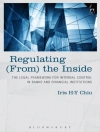Is the government really acting for the people? Or does this rhetoric simply justify an executive power-grab?
For some, Boris Johnson’s premiership epitomised how far the UK’s democracy has been captured by populism and the Prime Minister seemed more concerned about fulfilling the wishes of the British people than with following the rules or listening to Parliament.
Events like ‘Partygate’ grabbed the headlines. Criticisms of Boris Johnson’s actions eventually led to his resignation and replacement as leader of his party and Prime Minister. Some feel that this shows that the UK’s constitution is healthy, with checks and balances in place to prevent any possible abuse of power.
While these events attracted much media attention, other constitutional changes have been taking place with little public awareness. These have strengthened governmental powers and weakened political and legal checks over governmental actions. Deliberation is being replaced by rhetoric and principles of good government no longer seem to restrain the actions of those in power.
Alison Young provides the first consolidated account of these changes, arguing that the UK is currently on a constitutional cliff-edge which endangers democracy and good constitutional government. She argues that more is needed to shore up the UK’s post-Brexit constitution to prevent it collapsing into a system of unchecked power.
Tabla de materias
1. The Post-Brexit Constitution: Standing on a Constitutional Cliff Edge?
2. What Is Populism and Should We Be Worried?
3. Is the Government Getting Too Big for Its Boots?
4. Checks and Balances or Crowing and Bolstering?
5. Constitutional Guardrails or Greasy Poles?
6. Getting Things Done or Putting on a Show?
7. Constitutional Watchdogs: Rottweilers or Lapdogs?
8. Should We Be Afraid and if So What Should We Do about It?
Sobre el autor
Alison L. Young is Sir David Williams Professor of Public Law at the University of Cambridge, UK and an Academic Associate at 39 Essex Chambers. She has taught constitutional law at the University of Oxford and currently teaches at the University of Cambridge. She has appeared on BBC radio and television news broadcasts on constitutional issues, including on Law in Action, The Briefing Room, and Unreliable Evidence. She is a legal advisor to the House of Lords Select Committee on the Constitution and also regularly gives evidence to parliamentary committees on constitutional issues.












